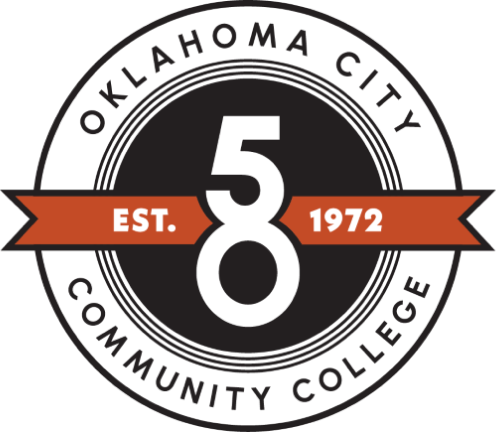Pandemic Individuals & Families Planning
Pandemic
- 2009 H1N1 Flu (Swine Flu)
- Basic Components of Pandemic Flu Planning
- Checklists
- Disease, Prevention, Preparedness
- Frequently Asked Questions
- Good Health Habits for Preventing the Flu
- Guillain-Barr Syndrome (GBS)
- H1N1 Influenza Vaccine FAQ’s
- Helpful Links
- Individuals & Families Planning
- Key Facts about Influenza (Flu) Vaccine
- Oklahoma State and Local Planning
- Oklahoma State and Local Planning & Response Activities
- Pandemic Flu Planning
- Ten things you need to know about pandemic influenza
- Terms and Facts
- The Great Pandemic of 1918
- What is a pandemic?
Individuals & Families Planning
Documents in PDF format require the Adobe Acrobat Reader . If you experience problems with PDF documents, please download the latest version of the Reader .
Overview
As you plan, it is important to think about the challenges that you might face, particularly if a pandemic is severe. It may take time to find the answers to these challenges. Below are some situations that could be caused by a severe pandemic and possible ways to address them. A checklist and fill-in sheets for family health information and emergency contact information have been prepared to help guide your planning and preparation.
Family Guide, Checklist, and Information Sheets
The following information sheets serve as checklists for employees to take home to share with their families, to ensure the best knowledge and preparation possible both at home and at work. Each of the checklists may be found as well by following the link below, which has additional information for employees to share with their families. All information in the checklists was taken from the US government s official pandemic website, on the individual planning tab, and the checklists are provided by the United States Department of Health and Human Services.
 Pandemic Flu Planning Checklist for Individuals and Families [PDF 121 KB]
Pandemic Flu Planning Checklist for Individuals and Families [PDF 121 KB]
 (Amharic)
(Amharic)  (Arabic)
(Arabic)  (Chinese)
(Chinese)  (Farsi)
(Farsi)
Oromo (Russian) Somali Espa ol (Spanish)
(Russian) Somali Espa ol (Spanish)  (Vietnamese)This document contains information on how to plan for a pandemic, how to prevent the spread of germs and prevent infection, and examples of items to have on hand for an extended stay at home. All of this information is also included in the Guide for Individuals and Families.
(Vietnamese)This document contains information on how to plan for a pandemic, how to prevent the spread of germs and prevent infection, and examples of items to have on hand for an extended stay at home. All of this information is also included in the Guide for Individuals and Families. Family Emergency Health Information Sheet [PDF 122 KB]
Family Emergency Health Information Sheet [PDF 122 KB]
This document allows you to fill in information for each family member including blood type, known allergies, past and current medical conditions and current medication and dosages. If, for example, a mass vaccination clinic is set up in your community, you may need to provide as much information as you can about your medical history when you go, especially if you have a serious health condition or allergy. This form allows you to have all of that information on hand in one place. All of this information is also included in the Guide for Individuals and Families. Emergency Contacts Form [PDF 63 KB]
Emergency Contacts Form [PDF 63 KB]
A comprehensive place to store the contact information of key emergency contacts, including doctors, nearby hospitals, schools and family contacts. All of this information is also included in the Guide for Individuals and Families.
Social Disruption May Be Widespread
- Plan for the possibility that usual services may be disrupted. These could include services provided by hospitals and other health care facilities, banks, stores, restaurants, government offices, and post offices.
- Prepare backup plans in case public gatherings, such as volunteer meetings and worship services, are canceled.
- Consider how to care for people with special needs in case the services they rely on are not available.
Being Able to Work May Be Difficult or Impossible
- Find out if you can work from home.
- Ask your employer about how business will continue during a pandemic. (A Business Pandemic Influenza Planning Checklist
- Plan for the possible reduction or loss of income if you are unable to work or your place of employment is closed.
- Check with your employer or union about leave policies.
Schools May Be Closed for an Extended Period of Time
- Help schools plan for pandemic influenza. Talk to the school nurse or the health center. Talk to your teachers, administrators, and parent-teacher organizations.
- Plan home learning activities and exercises. Have materials, such as books, on hand. Also plan recreational activities that your children can do at home.
- Consider childcare needs.
Transportation Services May Be Disrupted
- Think about how you can rely less on public transportation during a pandemic. For example, store food and other essential supplies so you can make fewer trips to the store.
- Prepare backup plans for taking care of loved ones who are far away.
- Consider other ways to get to work, or, if you can, work at home.
People Will Need Advice and Help at Work and Home
- Think about what information the people in your workplace will need if you are a manager. This may include information about insurance, leave policies, working from home, possible loss of income, and when not to come to work if sick. (A Business Pandemic Influenza Planning Checklist
- Meet with your colleagues and make lists of things that you will need to know and what actions can be taken.
- Find volunteers who want to help people in need, such as elderly neighbors, single parents of small children, or people without the resources to get the medical help they will need.
- Identify other information resources in your community, such as mental health hotlines, public health hotlines, or electronic bulletin boards.
- Find support systems?people who are thinking about the same issues you are thinking about. Share ideas.
Be Prepared
Stock a supply of water and food. During a pandemic you may not be able to get to a store. Even if you can get to a store, it may be out of supplies. Public waterworks services may also be interrupted. Stocking supplies can be useful in other types of emergencies, such as power outages and disasters. Store foods that:
- are nonperishable (will keep for a long time) and don't require refrigeration
- are easy to prepare in case you are unable to cook
- require little or no water, so you can conserve water for drinking
See a checklist of items to have on hand for an extended stay at home.
Stay Healthy
| Will the seasonal flu shot protect me against pandemic influenza? |
|
Take common-sense steps to limit the spread of germs. Make good hygiene a habit.
- Wash hands frequently with soap and water.
- Cover your mouth and nose with a tissue when you cough or sneeze.
- Put used tissues in a waste basket.
- Cough or sneeze into your upper sleeve if you don't have a tissue.
- Clean your hands after coughing or sneezing. Use soap and water or an alcohol-based hand cleaner.
- Stay at home if you are sick.
It is always a good idea to practice good health habits.
- Eat a balanced diet. Be sure to eat a variety of foods, including plenty of vegetables, fruits, and whole grain products. Also include low-fat dairy products, lean meats, poultry, fish, and beans. Drink lots of water and go easy on salt, sugar, alcohol, and saturated fat.
- Exercise on a regular basis and get plenty of rest.
Get Informed
Knowing the facts is the best preparation. Identify sources you can count on for reliable information. If a pandemic occurs, having accurate and reliable information will be critical.
- Reliable, accurate, and timely information is available at www.pandemicflu.gov.
- Another source for information on pandemic influenza is the Centers for Disease Control and Prevention (CDC) Hotline at: 1-800-CDC-INFO (1-800-232-4636). This line is available in English and Spanish, 24 hours a day, 7 days a week. TTY: 1-888-232-6348. Questions can be e-mailed to cdcinfo@cdc.gov.
- Look for information on your local and state government Web sites. Links are available to each state department of public health at www.cdc.gov/other.htm#states.
- Listen to local and national radio, watch news reports on television, and read your newspaper and other sources of printed and Web-based information.
- Talk to your local health care providers and public health officials.
- As you begin your individual or family planning, you may want to review your state's planning efforts and those of your local public health and emergency preparedness officials. Many of the state plans and other planning information can be found at pandemicflu.gov/plan/tab2.html.
Links to Local and State Resources
for Employees and Families
The homepage of the Oklahoma State Department of Health.
Influenza facts, updates and resources from the Oklahoma State Department of Health
Contact information for the State of Oklahoma County Health Departments, listed alphabetically.
Oklahoma Department of Health Hotlines Take note of the Civil Emergency phone number (405-271-0900) and the number for reporting a disease or outbreak in your area (405-271-4060) for your emergency contact information sheets.
Public Health Emergencies, Including Suspected Terrorism Events
Call the Terrorism Preparedness and Response Service (TPRS) at (405) 271-0900. This is a 24 hours / 7 days a week number where a TPRS representative is on call and will respond immediately.









